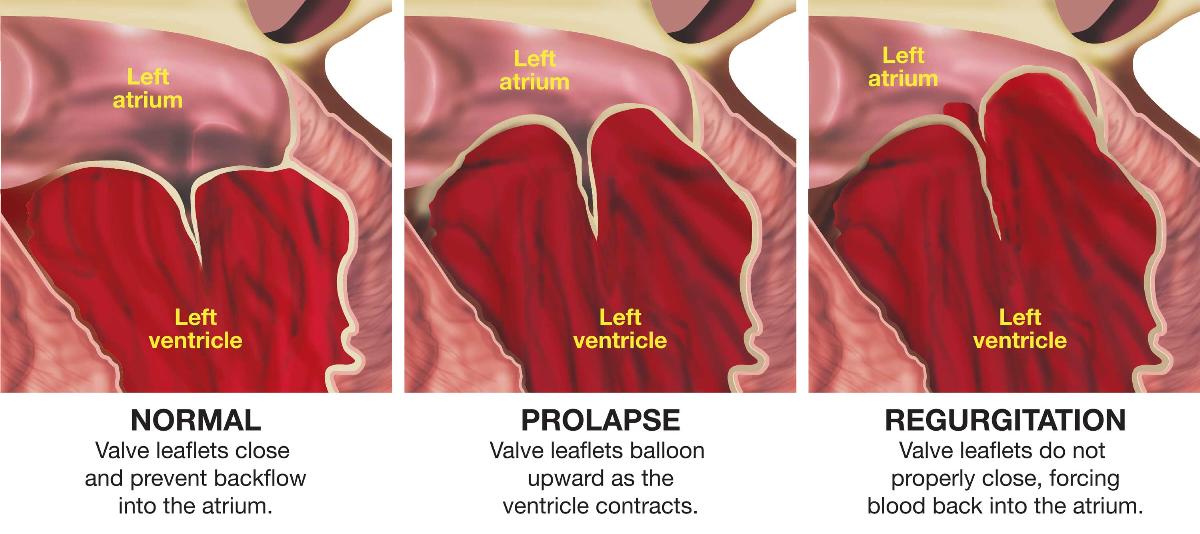
Mitral valve prolapse occurs when one of the valves of the heart does not work properly. The mitral valve is the valve between the upper and lower left chambers of the heart. When this valve does not close properly, it causes a condition known as mitral valve prolapse. Mitral Valve prolapse often causes no symptoms and is usually not a serious condition. However, it may sometimes cause blood to flow backward into the upper left chamber or left atrium of the heart. This back flow of blood is referred to as mitral valve regurgitation. Most people are born with mitral valve prolapse and this condition is often hereditary.
Symptoms of Mitral Valve Prolapse
Most people with mitral valve prolapse do not experience any symptoms or complications. Symptoms that do appear are often the result of mitral valve regurgitation. Symptoms may include:
- Arrhythmia, a racing or irregular heartbeat
- Dizziness
- Difficulty breathing
- Headache
- Fatigue
Some individuals with mitral valve prolapse experience chest pain or discomfort.
Causes of Mitral Valve Prolapse
The exact cause of mitral valve prolapse is not known. For some people with mitral valve prolapse, the flaps of the mitral valve have extra tissue which causes the valve to balloon back to the left atrium. Mitral valve prolapse tends to run in families and may be more prevalent in people with Marfan syndrome, certain types of muscular dystrophy, Grave’s disease, hyper mobility syndromes, especially Ehlers Danlos Syndrome and scoliosis.
Diagnosis of Mitral Valve Prolapse
Many people do not know they have a mitral valve prolapse and it is often diagnosed incidentally during a routine physical exam. The doctor initially listens to the heart using a stethoscope, and the following diagnostic tests may be used to confirm a diagnosis of mitral valve prolapse:
- Echocardiogram
- Cardiac catheterization
Although the Echocardiogram (ultrasound of the heart) is used to make the diagnosis of Mitral Valve Prolapse, several other tests are used to evaluate symptoms patients may have that would indicate the diagnosis of Mitral Valve Prolapse Syndrome or Dysautonomia. An EKG may be performed to detect any irregular heart beat or to monitor medication used to treat arrhythmias. A stress test may also be administered to determine if mitral valve regurgitation limits the patient’s ability to exercise or perform physical activities. It may also be performed to rule out any underlying cause of chest pain. A tilt table test is used when a patient has unexplained dizziness or passing out.
Treatment of Mitral Valve Prolapse
Often, no treatment is necessary for patients with mitral valve prolapse who do not experience any symptoms. If individuals also experience mitral valve regurgitation and a significant amount of blood is leaking through the mitral valve, our policy is to refer to a cardiologist for further appropriate diagnostic testing and treatment.
In severe cases, surgery may be necessary to repair or replace heart valves. Without treatment, severe mitral valve regurgitation can eventually cause heart failure, preventing the heart from effectively pumping blood.
Many Mitral Valve Prolapse patients have symptoms out of proportion to the degree of prolapse or regurgitation on their Echocardiogram. Many of these patients have Mitral Valve Prolapse Syndrome or Dysautonomia.
